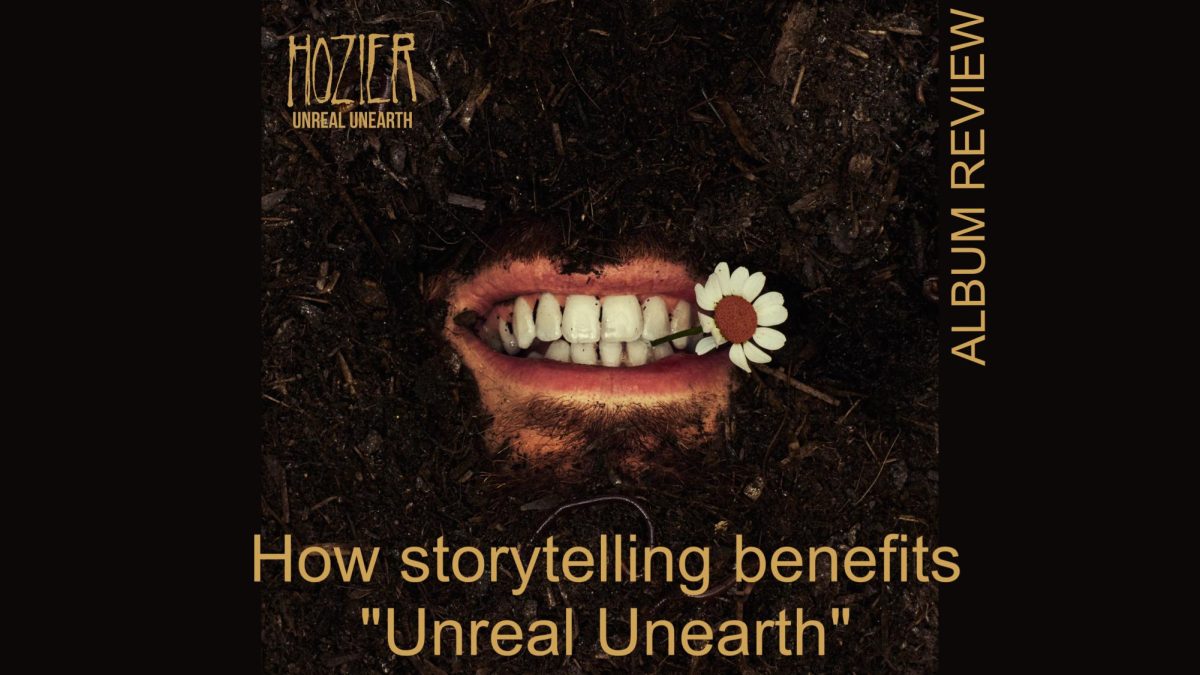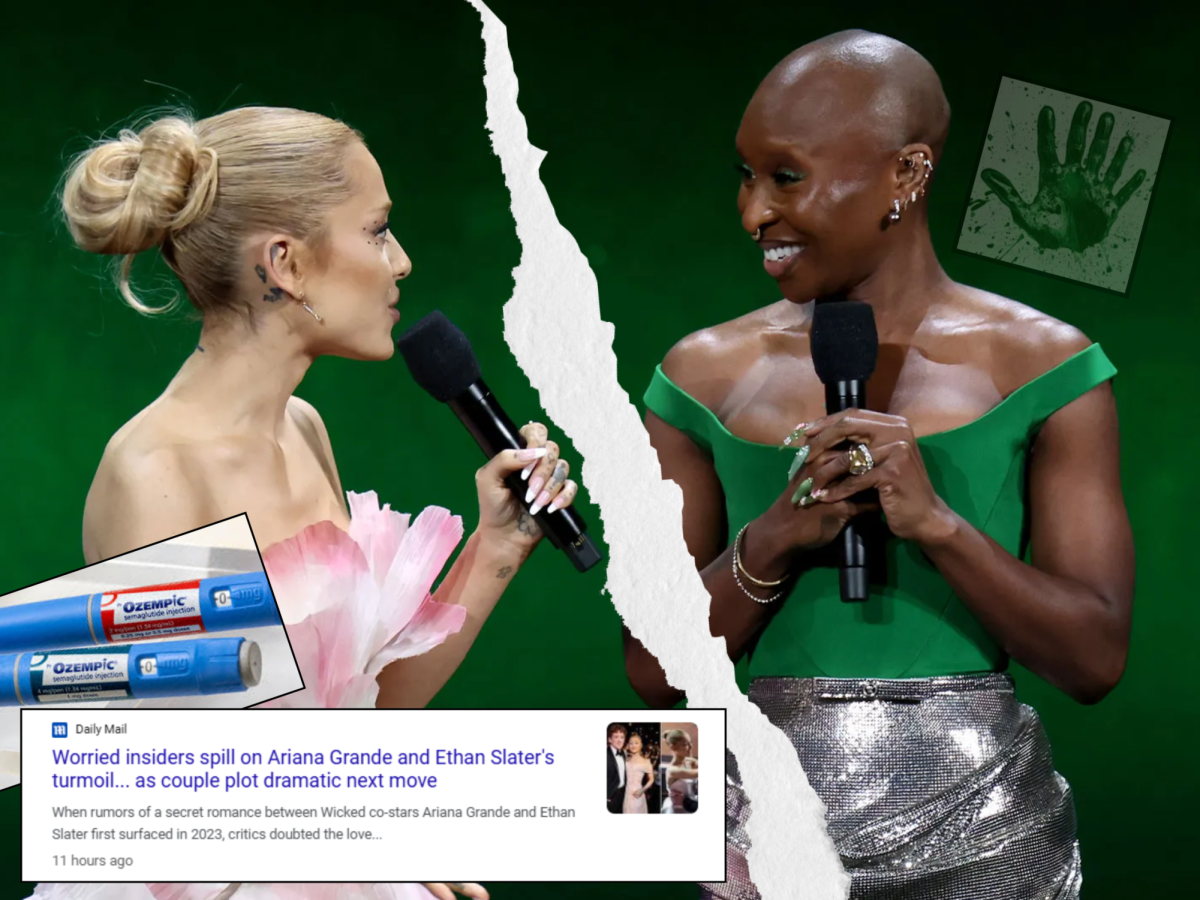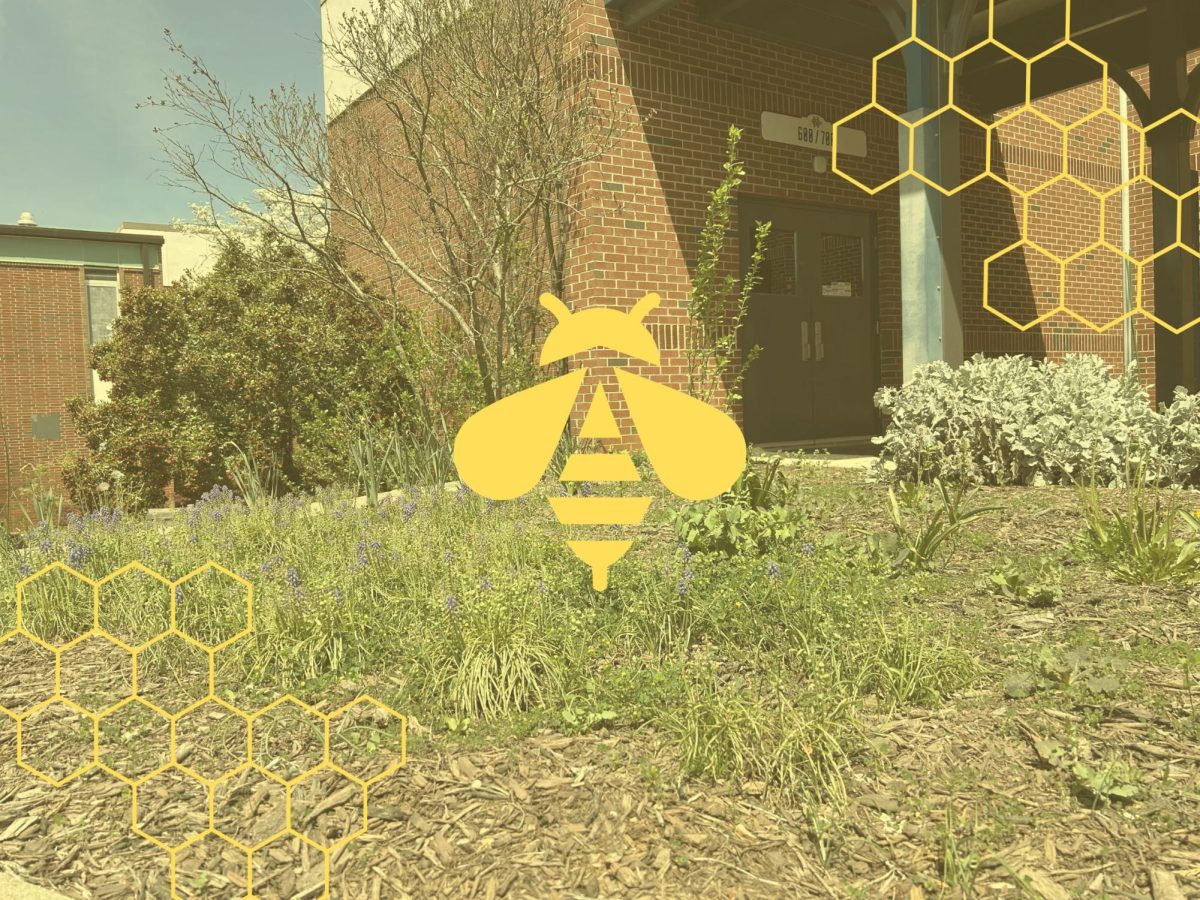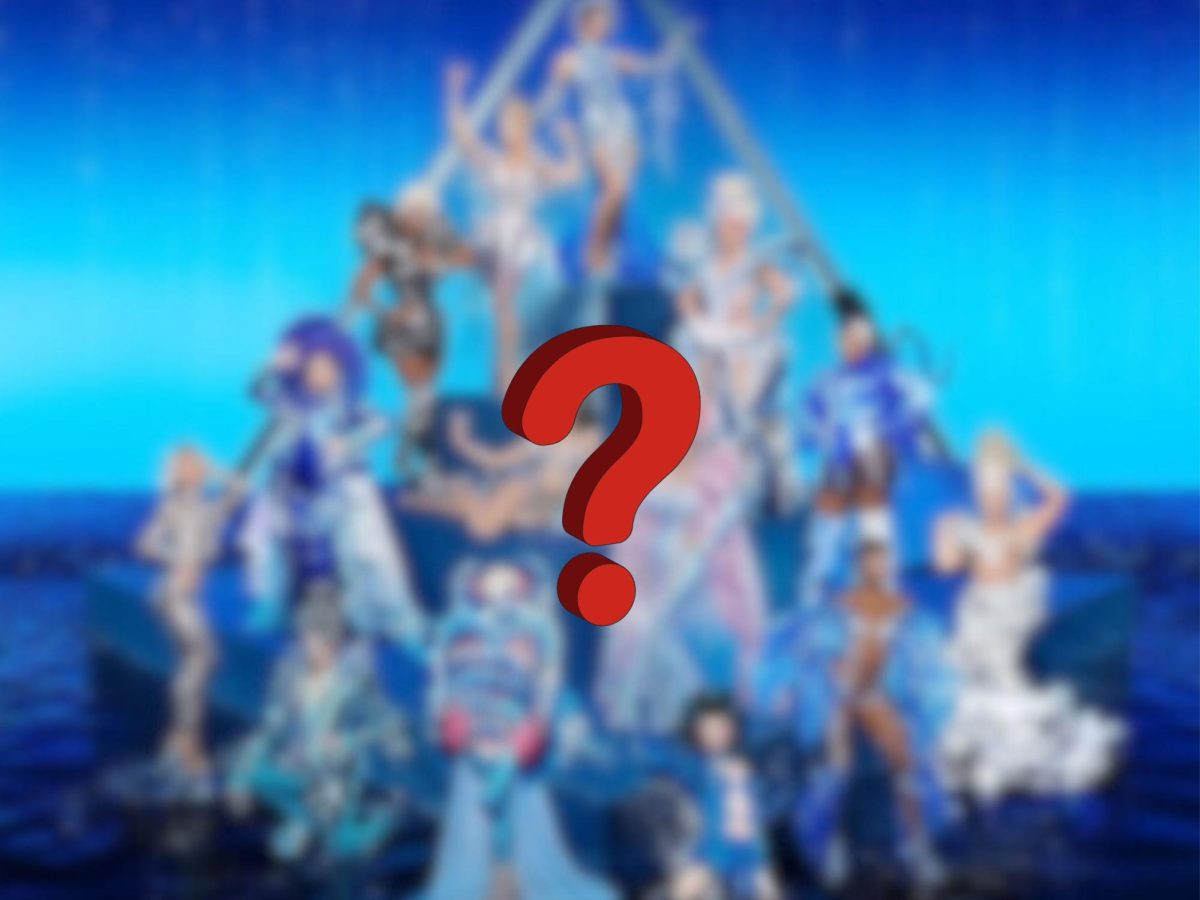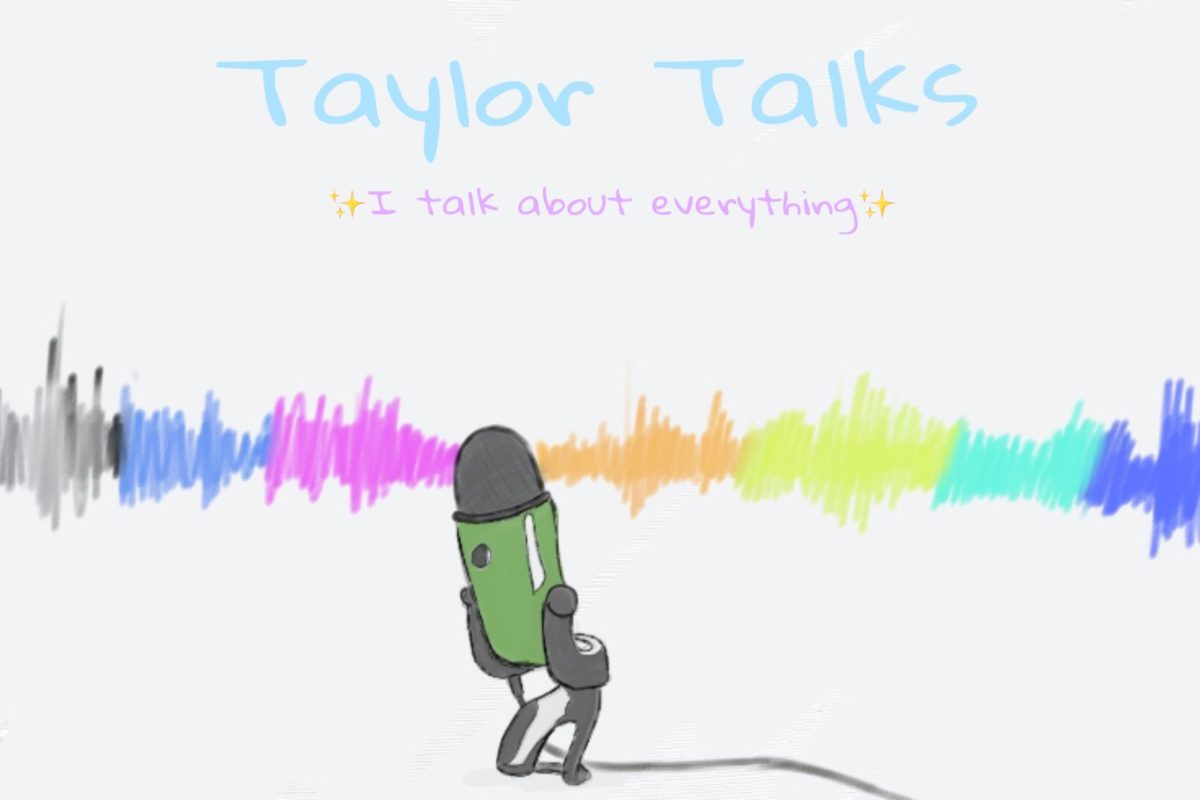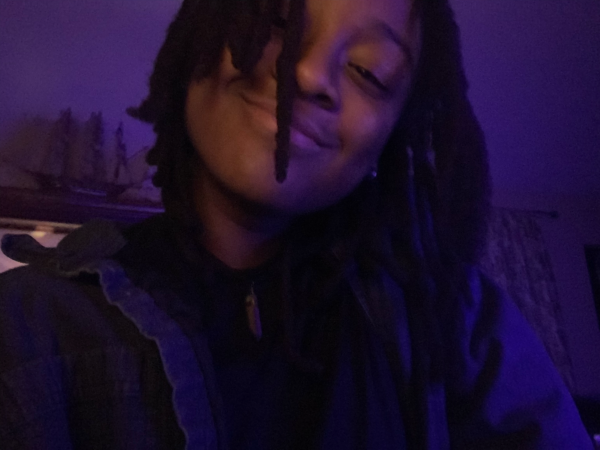Irish musician Andrew John-Hozier Byrne, professionally known as Hozier, dropped his third studio album “Unreal Unearth” August 18. With over 15 tracks and about an hour of runtime, Hozier brings stories through fantasy, philosophy and mythology. With this album being praised by fans, he delivers sentiment and passion with this body of work.
“I was just playing with ‘Unearth’ as sort of our world seems sort of unreal or surreal, and not like itself [Discussing the album name and meaning]. But to unearth, to dig, and uncover, and reveal. It was just playing with that I guess. I started writing the album early parts of the pandemic period. It just felt like we were stepping into a new type of world. It was kind of surreal,” Hozier said.
The pandemic brought several periods of reflection and internal janitorial work for Hozier and the majority of the public across the globe during the COVID-19 lockdown. However, Hozier took advantage of this time and turned this scary period into music. The pandemic famously brought “Folklore” by Taylor Swift, “Fetch The Bolt Cutters” by Fiona Apple and “Sawayama” by Rina Sawayama, so fans do not know why Hozier waited to release this album. Nevertheless, Hozier continues to bring fans creative genius, even if it takes longer than expected.
The album opens with “De Selby (Part 1),” referencing the main character in Irish writer Flann O’Brien’s novel “The Third Policeman.” This track introduces themes of darkness, loss and love while gracefully fading into its counterpart “De Selby (Part 2)”, a vocally powerful ballad about connection. Songs such as“First Time,” “Francesca,” “I, Carrion” and “Who We Are,” deliver heavy-hitting lyrics that leave listeners wanting more. Listeners can navigate the album like a journey; the lyrics unfold themes of relationships, culture, depression and heartbreak with major inspiration from Dante Alighieri’s novel “Inferno.”
With tracks three through seven, “First Time,” “Francesca,” “Eat Your Young” and “Damage Gets Done,” listeners receive their first hint of fantasy with references to Greek mythology, Alighieri’s nine circles of hell and the life of Francesca De Rimini.
“It’s not tied to the literature [Dante’s Inferno] in any way. I think it’s important that the songs just be the songs. And do their thing. But the album is just arranged in its themes, along with what he, I guess [Alighieri] imagined as these nine circles, that his little character walked,” Hozier said.
Though these tales come off as intense, Hozier’s lyricism seamlessly connects this intensity back to love. With the lines “But some part of me came alive/The first time that you called me, ‘Baby,’” in the track “First Time”, Hozier wants listeners to feel the lyrics through literary analogies mixed with a story of modern romance.
The songs “Who We Are,” “Son of Nyx,” and “All Things End” express gut-wrenching feelings of loss. With lyrics such as “If there was anyone to ever get through this life/With their heart still intact, they didn’t do it right,” in “All Things End” Hozier brings listeners back to feelings of darkness.
The album ends with track 16, “First Light”, a song about hope, healing and finding the “light” closes the album. Dante reaches the light, and listeners experience relief.
Love remains a dominant topic throughout this album, and throughout Hozier expresses the positives in finding new love. Stuck in a love that brings darkness, sadness and aches of dread, Hozier portrays these emotions perfectly through lyricism and excellent production.
With highlights such as “Eat Your Young”, “Butchered Tongue”, and “Francesca,” Hozier does not disappoint with this album. Amidst the long wait for the lyricist’s return, Hozier sent letters to fans, posted snippets online and dropped hints of lore left and right.
“I, in general, think that this is his best album thus far. The walkthrough of a relationship and further self-discovery being based on Dante’s Inferno and the nine circles of hell is an incredible concept he executed it so well… I would give it 10/10 stars and highly recommend listening to it with the lyrics in mind,” NC alumna Claire Stobo said.
The Chant’s Rating: B+




